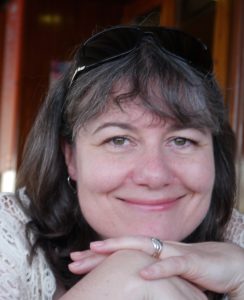 Rebecca Farrington first worked overseas with refugees 20 years ago for MSF. She is now a GPwSI in refugee mental health having worked in the UK as a GP with people seeking asylum for 10 years. She combines this with a clinical lecturer role at the University of Manchester and GP locums.
Rebecca Farrington first worked overseas with refugees 20 years ago for MSF. She is now a GPwSI in refugee mental health having worked in the UK as a GP with people seeking asylum for 10 years. She combines this with a clinical lecturer role at the University of Manchester and GP locums.
Last month I joined Turkish, Dutch, Swiss and Irish GPs to run workshops about refugee children at Wonca Europe in Istanbul. The topic is hot and was mentioned by many speakers. Wonca produced a valuable statement encouraging doctors across the continent to uphold a migrant’s rights to equitable care “unconditionally and based on a set of core values” fundamental to the practice of family medicine.
So how can we in the UK respond to the challenges? Delivery of primary care for asylum seekers in the UK is fragmented. We have NGOs and foreign aid agencies in our cities struggling to find NHS care for the most vulnerable. There is undoubtedly goodwill amongst the GPs I meet, interest from trainees and First 5 doctors in knowing more, but there is little in the way of infrastructure and training. GPs are expected to ‘get on with it’, but asylum seekers are challenging patients. They don’t trust you and can’t navigate your system. They are often distressed, some having experienced trauma that is beyond your comprehension. Their priorities can be low on Maslow’s Hierarchy – safety, warmth and legal representation. Freedom from pain, often tied up in their expression of psychological distress, is a frequent demand. Most are socially and financially deprived, living in fear, and we know their health deteriorates in the asylum system.
It’s scary to ask the question ‘what happened to you?’ – even scarier when you only have 10 minutes and perhaps are under pressure to use inadequate or inappropriate interpretation. Disclosure can be traumatising for the practitioner and the patient. Who wants to end the consultation feeling worse? So to “screen and promptly identify cases of violence and abuse, prevent them and intervene in collaboration with the relevant authorities and community resources” can feel quite daunting. We are there to provide health care, not decide their asylum claim, but many have complex medicolegal needs that remain unaddressed without our advocacy as their doctors.
For 7 years in Salford we had a PCT-managed asylum seeker surgery. We developed expertise and, just as important, we looked after each other. We had good interpretation and excellent links with the voluntary sector. We knew how to write letters that actually made a difference for patients. In 2012 we were closed following a failed tendering process: there were no ‘willing providers’. No one ever said we weren’t doing a good job, but there was ‘no way’ to commission it directly in the new structure.
Salford CCG and GMW Mental Health Trust now support me to work as a GPwSI but we all recognise its limitations especially in overcoming the barriers to access. With an influx of new refugees – people with the same hopes, dreams and fears as you and me – what are we actually going to do to ensure “sustainable and uninterruptable provision of comprehensive and integrated health care”? Our response to this is the ‘canary in the mine’. If we can get this safety net right for our most vulnerable then other disempowered, communities will also benefit.
People seeking sanctuary arrive on their knees. If we can give them a hand up we will have a young, fit population keen and able to contribute to our economy. If we don’t, we risk social alienation and a chronic disease burden that can be prevented.
In the North West we propose a hub and spoke model: GPs and nurses with specialist knowledge and skills supported by local practices sharing care. Innovations in IT with remote access to notes and co-production by refugees themselves, many of whom bring professional skills, can make for safe, appropriate, culturally sensible and patient-centred care. Strong primary care is an economically sound investment for this group and at such a hub we could provide workplace training in social medicine for our new GPs.
There are people in the UK who know what needs to be done. Many of us were doing it prior to 2012, but we need an infrastructure to support us. John Yaphe at Wonca said “We need the head, the hands and the heart to make it happen”. I would add we need the political will, and that we should move now to turn talk into action.





